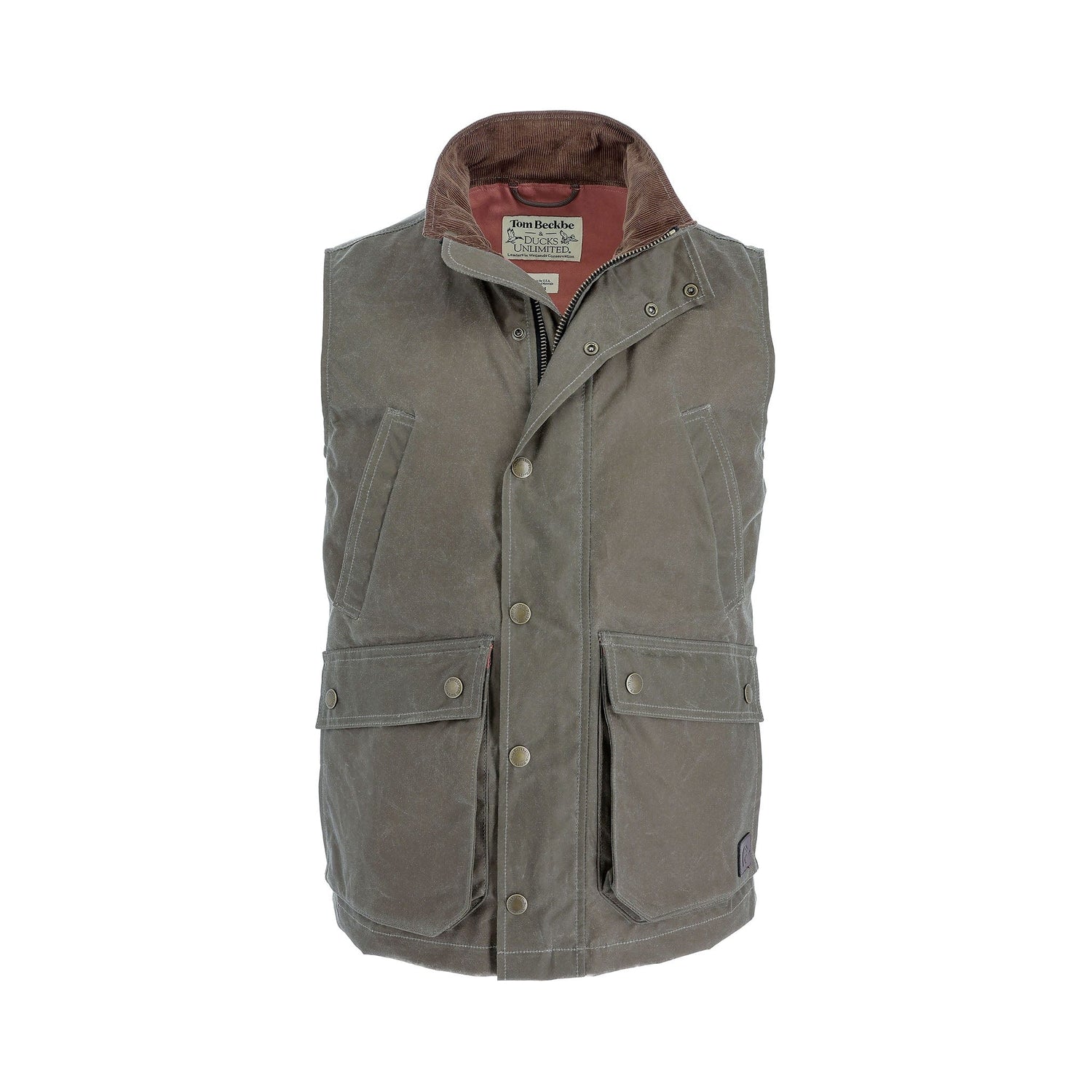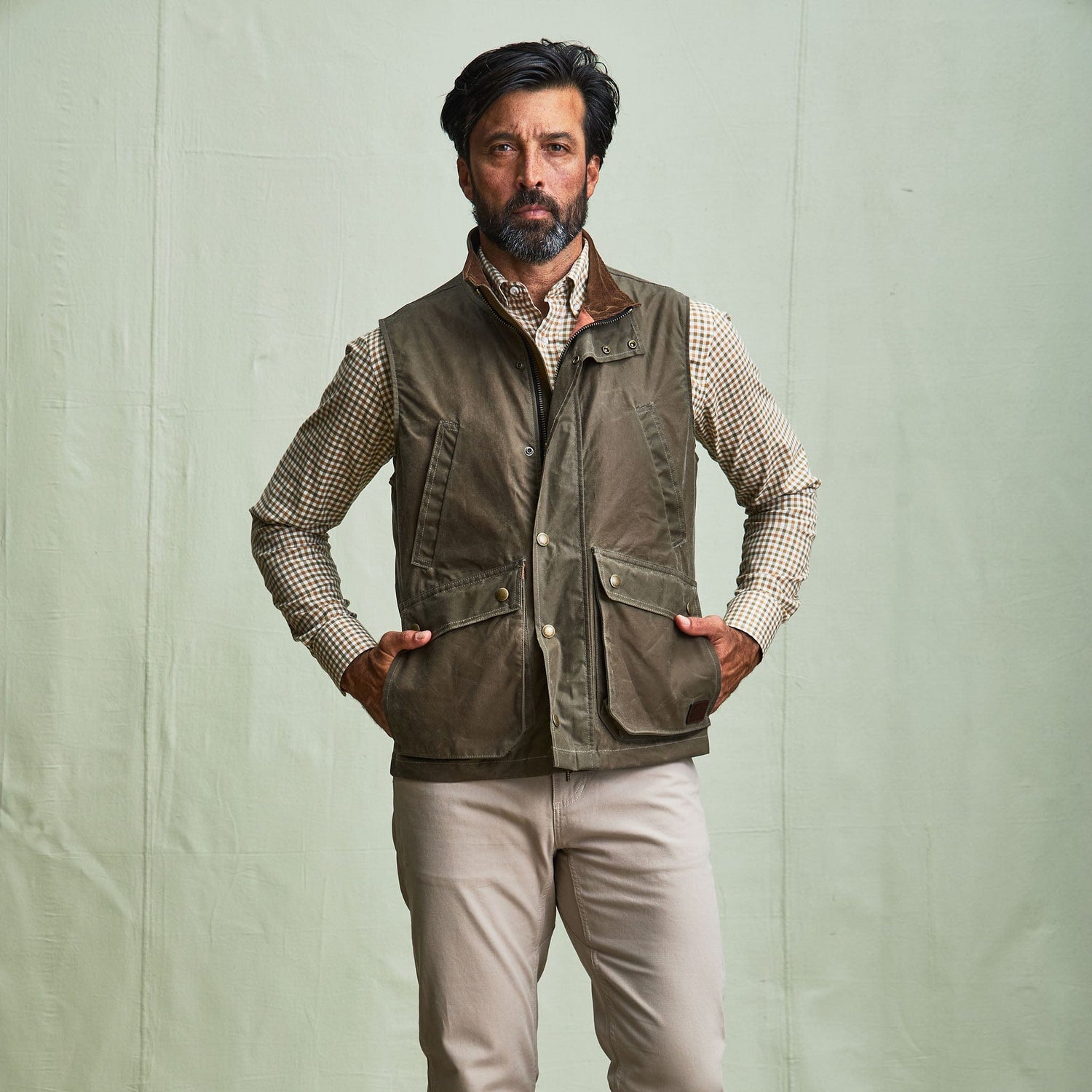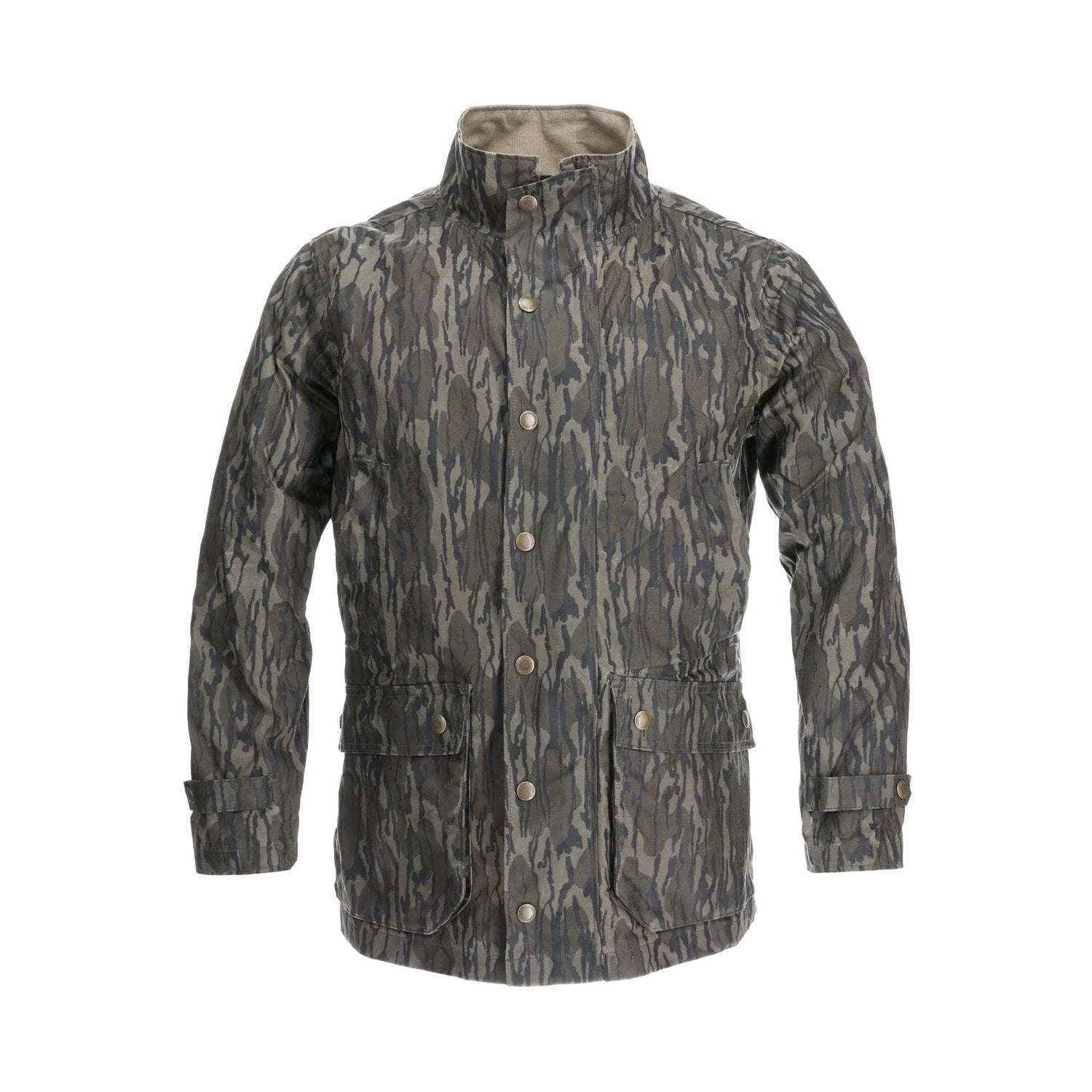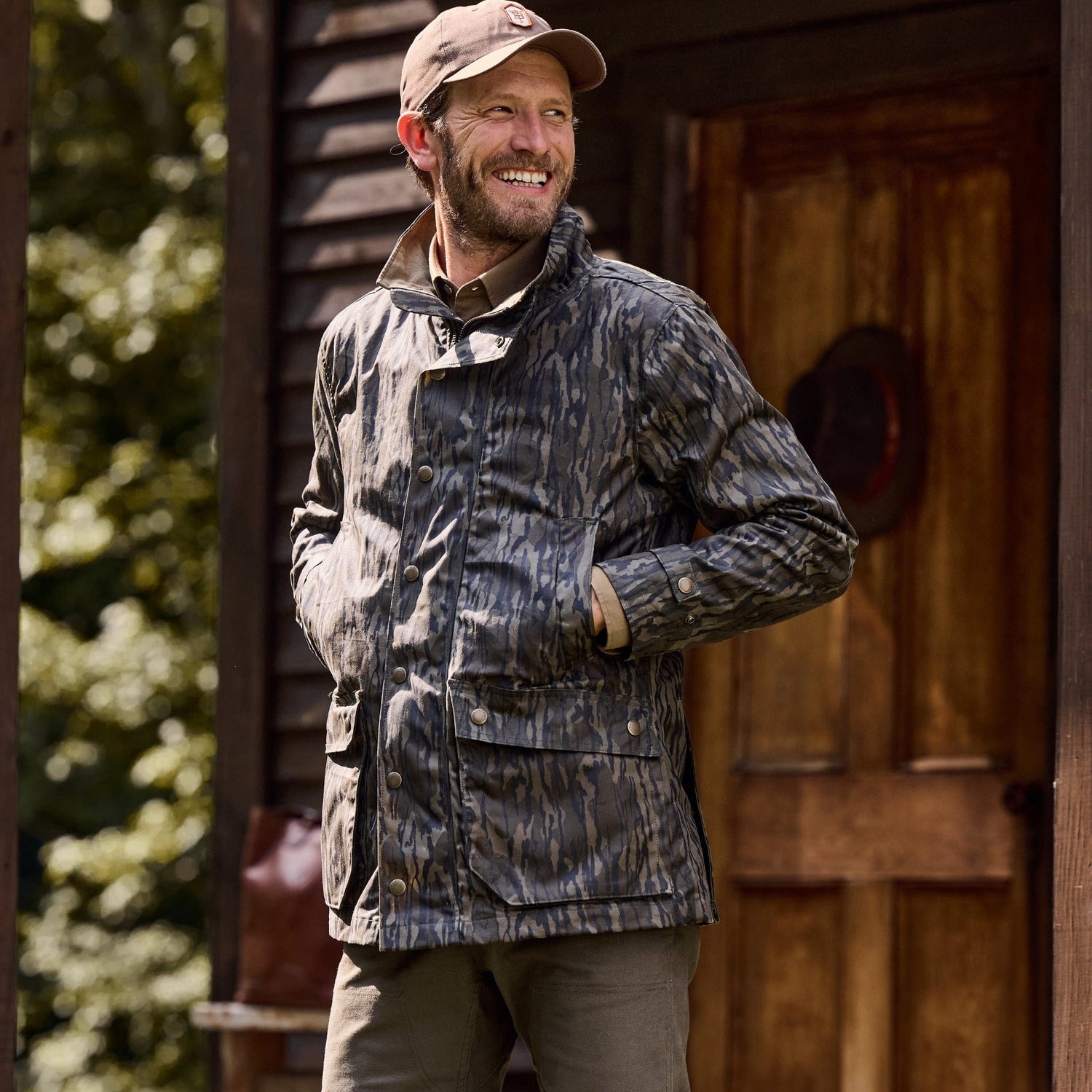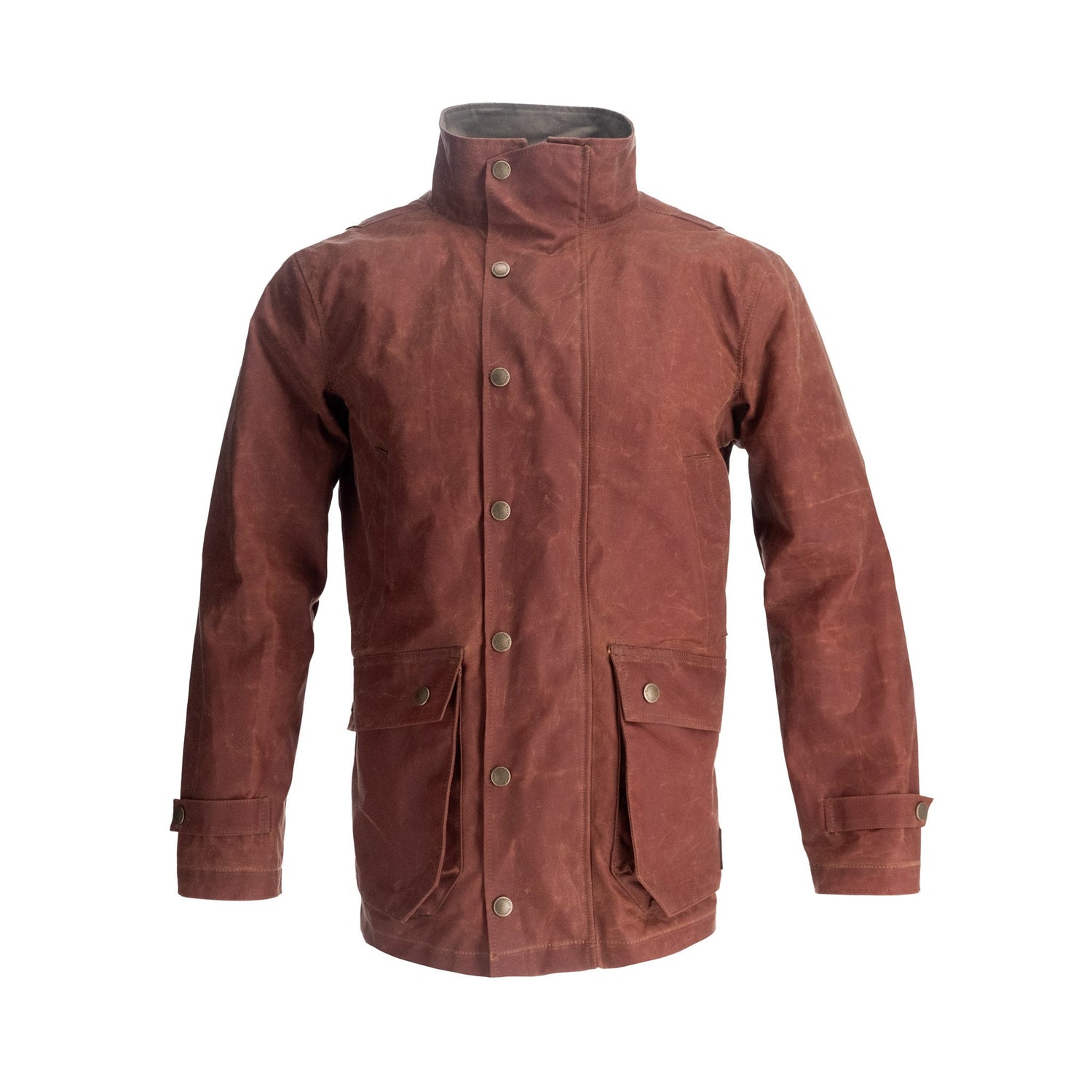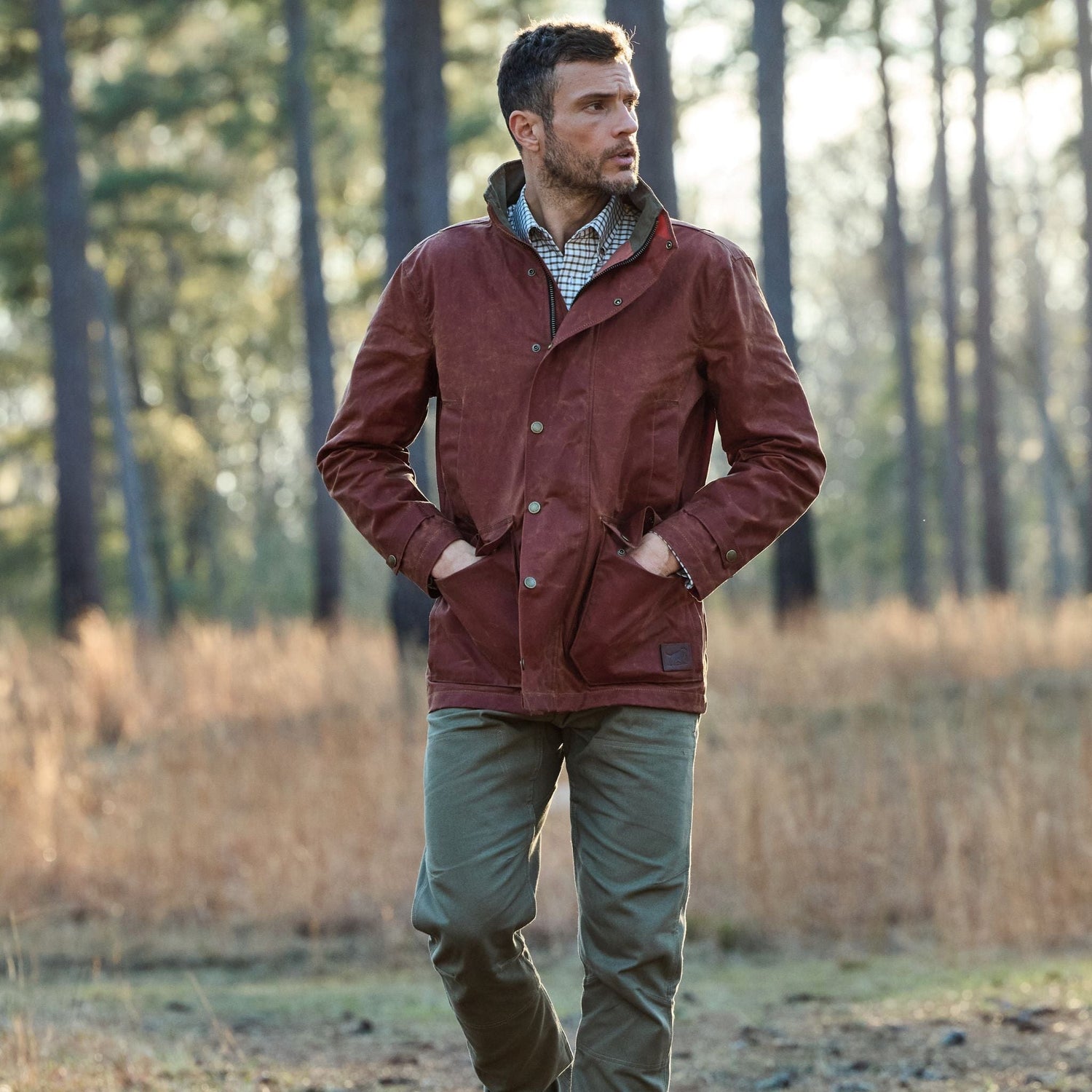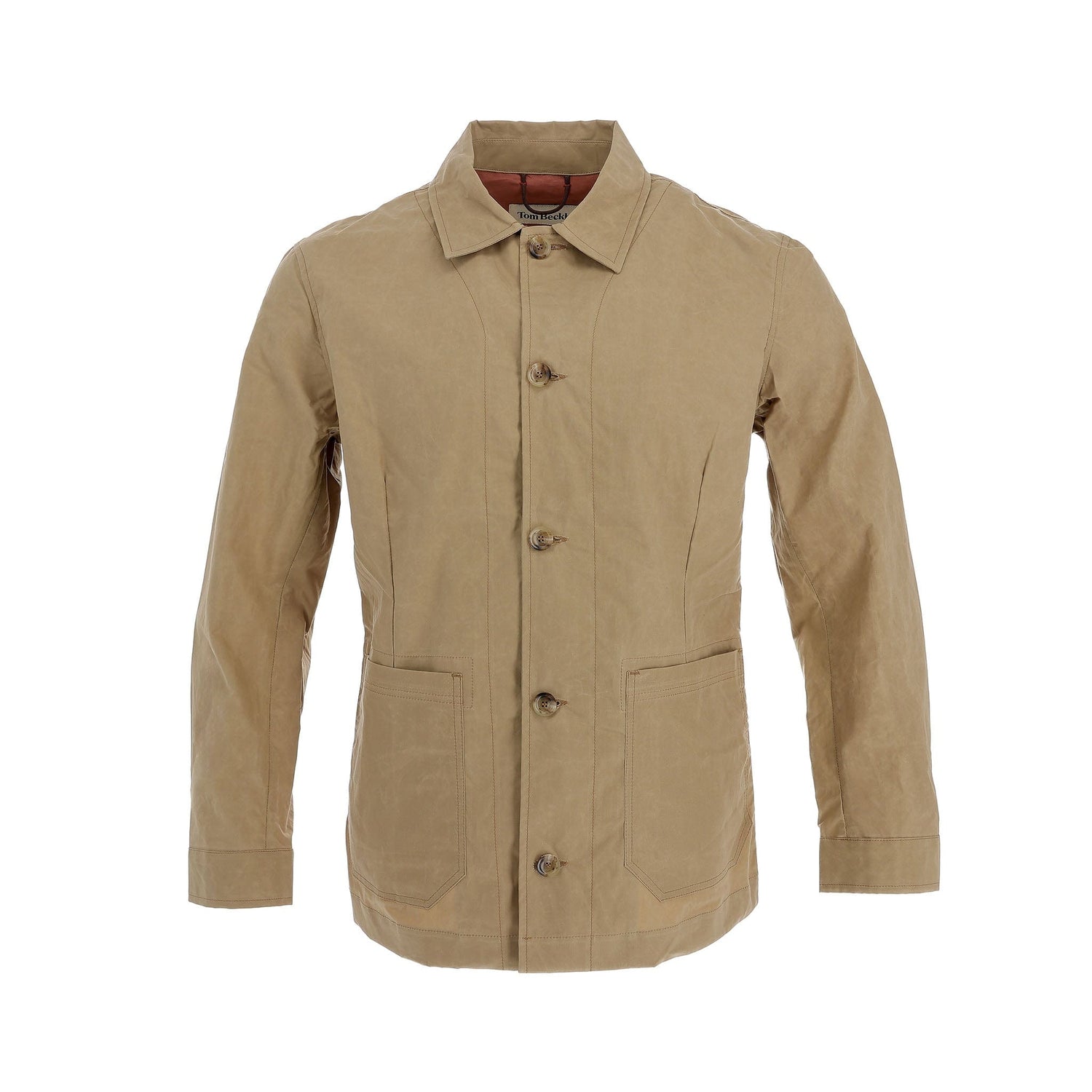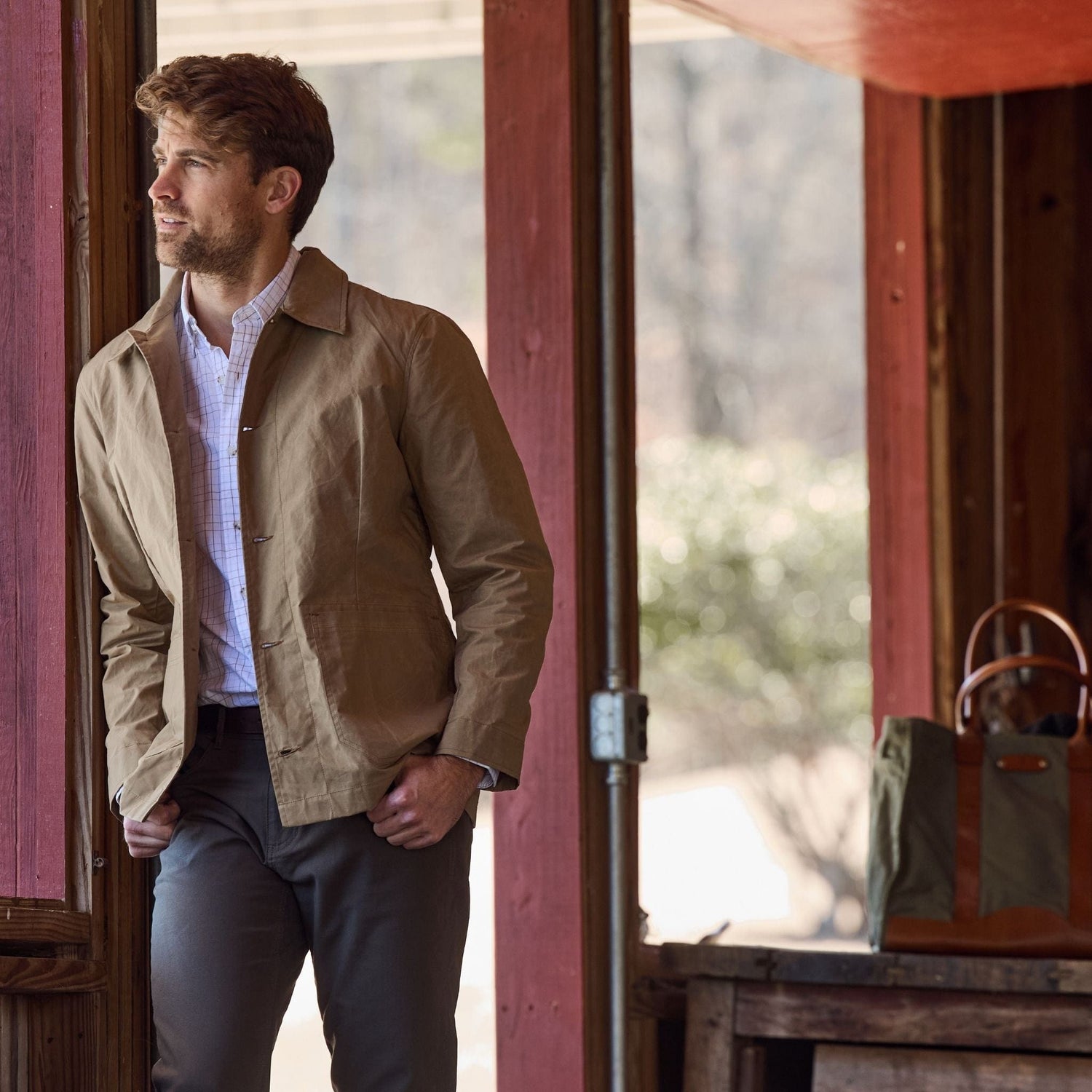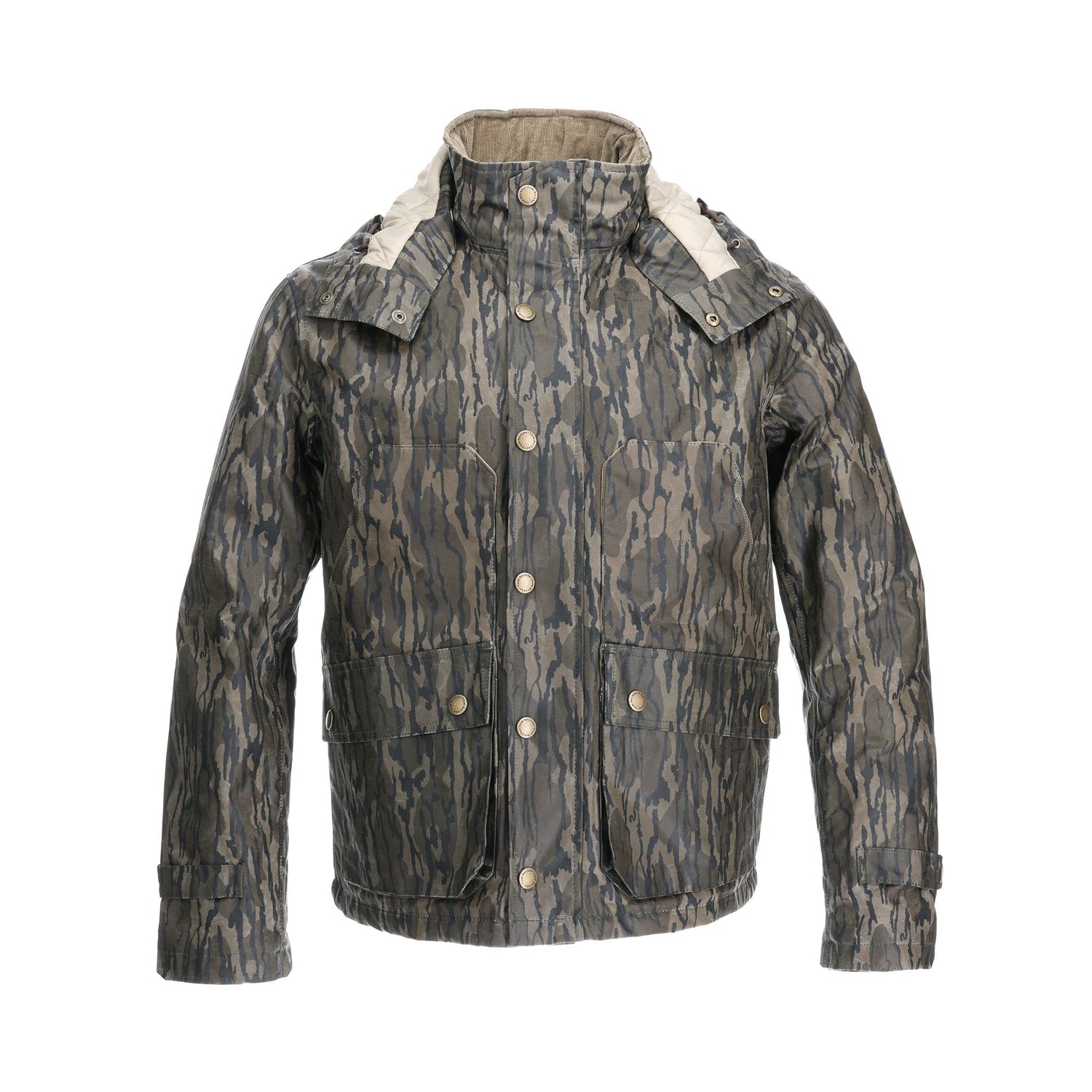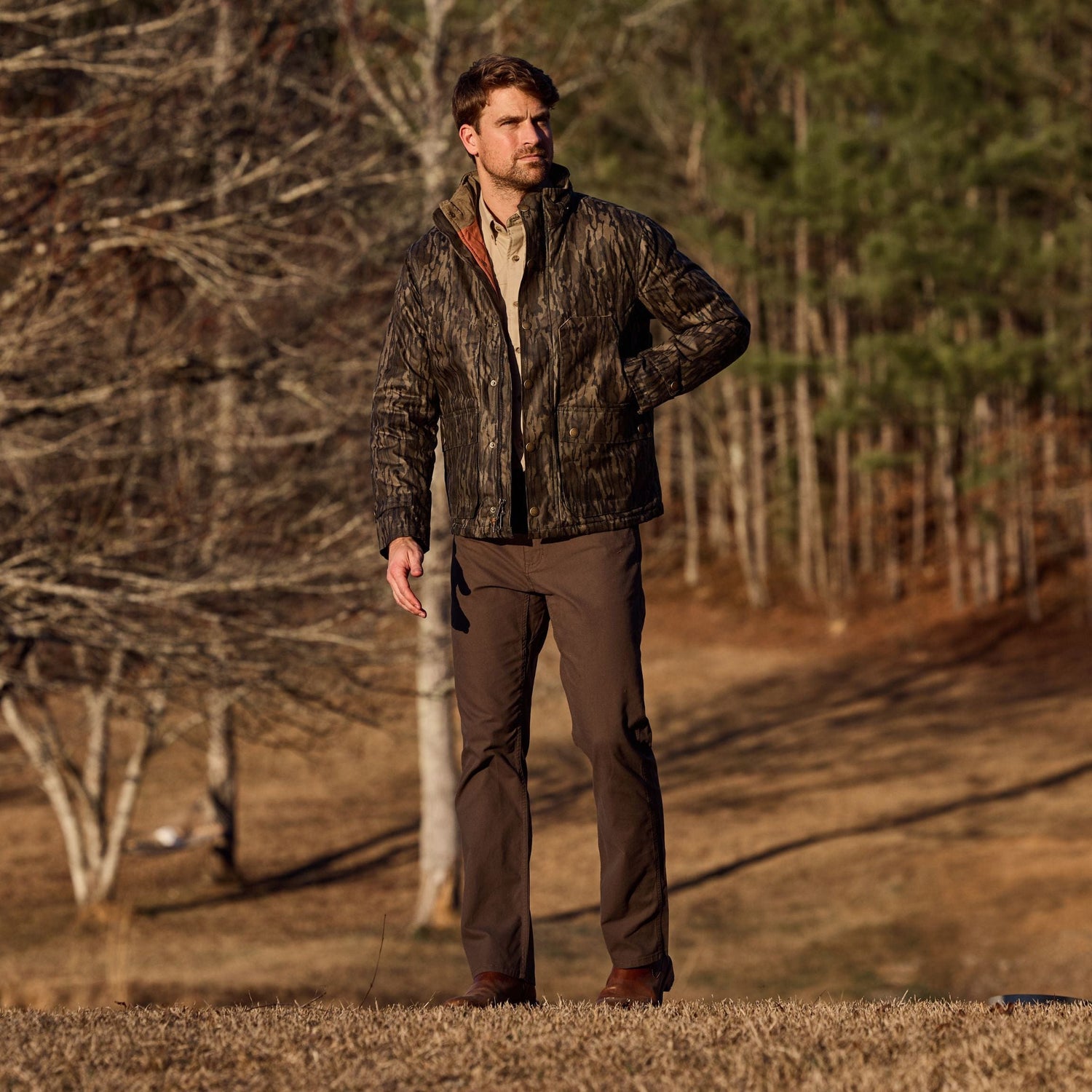The deer were 700 yards from the road, their gray bodies easy to see against the fallen snow. Maybe a dozen does, a couple of forkhorns, a spike, all presided over by a nicely framed four-by-four. He was one of the bigger bucks we’d seen in seven days of searching.
From the cab of the truck, Mark and I plotted what was likely to be our last stalk before we had to start the cross-country drive home. We watched them browse contentedly at the base of a jumbled outcrop of sandstone boulders. Mark turned away from his spotting scope to say something when a gunshot cracked through the still, high country air. By the time he re-found the buck, it was on its last legs, stumbling out of view.
“Dammit.”
We sat in silence while a week’s worth of frustration filled the space between us. I rubbed the heels of my hands hard against my bloodshot eyes and windburned face. Mark stared into his lap for a minute and then went back to the window-mounted scope.
“There’s the hunter,” he said, and I reluctantly raised my binoculars to look. I didn’t need to follow this storyline anymore. Maybe we could find something else in the next hour or so. Didn’t have to be big.
“I think it’s a woman,” Mark said with surprise. “She’s wearing pink.” And so, we sat there, watching her progress down the jagged hillside instead of pressing on in a last-ditch effort to find another buck. Eventually, when she made it to the bench where the deer had been feeding, it was clear the change in perspective had left her unsure of the buck’s final resting place.
“She can’t find it,” Mark observed. “We should go help her.”
“It’s up to you, man,” I said. “We don’t have much time left before we got to get out of here.”
Mark paused, weighing the odds of finding a second “last morning buck” against the novelty of helping a woman recover her deer. “I know where it is,” he said. “Let’s go help her.”
It took fifteen minutes to hike down through the thick patch of aspens at the bottom of the drainage and then climb up the opposite side – but she was still there, standing on a boulder, looking away from us towards the edge of the trees.
“’Lo!” Mark hailed.
The woman turned to face us and raised a hand in greeting instead of shouting back. Watching wordlessly as we closed to within talking distance, she was well past middle-age, with a waist-length braid the color of quicksilver, thinly pursed lips, and a weathered face.
“Need any help?” I asked. “We saw you shoot from the road back there.”
“Yes,” she replied calmly. “I’m glad you’re here. I was starting to think this was going to be a bad day.”
Mark stepped onto the rock with her and got his bearings. “There,” he pointed.
Her eyes followed his finger, and she quickly found the deer. “Good,” she said, with less emotion than I expected. “Let’s go get him.” Wordlessly, we fell in behind her as she made her way to the buck. “Oh, he’s not too bad,” she remarked as we walked up on him. “He’s not too bad. This is good. You can help me get him out of here.”
I looked at Mark for an indication of how we’d respond to the woman’s plan for the rest of our morning. Any more time spent with her would slide his window of opportunity ever more shut. He looked at me and then in the direction of the truck.
“Sure,” he replied. “Should we go get our backpacks?”
“There’s two of you,” she said, surprised. “The trailhead is only four or five hundred yards away. Can’t you just drag him?”
We looked down at the deer; a mature buck with a stout body that looked to be 250 pounds or more - exactly the kind of deer we were hoping to be carrying out on our backs at some point during the past week, but with Mark’s tag looped through its Achilles tendon – maybe in two trips. But before we could protest, she sweetened the deal. “I’ll dress him here for you. That’ll lighten him up.” And with that, she reached for the hunting knife hanging from her belt in a fringed leather sheath. She held it out, pinched between her thumb and index finger, for our inspection. “My grandfather made me this knife when I was a teenager. The scales are carved from the antlers of my first bull elk. My grandfather’s ashes are scattered up there in the rocks where I was sitting this morning. My father’s ashes are on the other side of the ridge. I’m Thomasine Sanchez, and I’m 64 years old. My people came here from New Mexico by way of Mexico, so I’m part Mexican, part Zuni Pueblo Indian. Where are you guys from?”
Without waiting for an answer, she straddled the buck and proceeded to field dress it with practiced efficiency. In a few minutes, she had eviscerated the animal, its heart and liver perched on the snow to drain. “There,” she looked up. “That took 40 or 50 pounds off him. You guys should be able to drag him now.”
“Thomasine, what would you have done if we didn’t come along?” I asked.
“I would have carried him out in quarters. Would’ve taken me all day, but I’m used to it. Done it plenty of times. I shot my biggest elk when I was eight months pregnant - took me three days to pack him out. My husband was stuck in Bozeman for work. He’s been dead a long time now. It’s okay, though. I’ve got you guys to help me. That’s why you’re here.”
I took another look across the drainage at the truck, then bent over and grabbed one side of the buck’s chocolate-colored rack. Mark took up the other. Thomasine threw on her day pack and slung her rifle over her shoulder, and led the way. Mark and I followed, straining against the weight of the deer, the steepness of the grade, and the rocks and deadfall blocking our way. We gulped at the thin air inside the first fifty yards. Thomasine, on the other hand, continued her firehose narration of her life story, but we could only hear snippets over the crunching snowpack.
She’d once managed a sheep ranch in Montana. Her husband was a salesman and wasn’t much for the outdoors. He was gone most of the time for work. When they split, she’d moved back to Colorado, where she’d been born and raised, to be closer to her parents and grandparents. Not too far from where we were right now.
“Thomasine,” I wheezed. “I need a break.”
We dropped the buck, bent over at our waists, and pulled off our knit caps while Thomasine looked at us dubiously; a slow physical assessment that started at our boots and ended at our eyes. “Where did you boys say you were from again?”
And so it went over the next hour - Mark and I dragged the deer as far as we could while Thomasine effortlessly broke trail ahead of us. She had married a second time. He wasn’t an outdoorsman either, and he, too, was now dead. She had a son and two daughters. One of the daughters was a hunter. These days, Thomasine made a living as a therapeutic masseuse. “Three hundred hours of training will get you a certificate to give a deep tissue massage.” She laughed.
We took up the deer again, but the distance between breaks grew shorter and shorter, to the point that we couldn’t go more than 100 feet at a time.
Thomasine had hunted in pretty much the same spot for the last twenty years - whenever she drew a deer tag. When she drew an elk tag she hunted across the river. She’d hunted this spot on opening day, the same day that snow drifts and ice had turned Mark and me away, and she’d kicked a mountain lion out from the rocks as she hiked to the top. “Plenty of lions around,” she surmised. “Plenty of food for them.” On the second day, she felt too poorly to make it out. “Doc says I have walking pneumonia.” In fact, this was the first time in the past six days that she’d felt well enough to hunt. “I’m not at my best right now,” she admitted. “But I’m doing alright.”
By then the trailhead gate was in sight, and with what seemed like the very last of our energy, we ducked it and pulled the buck into the parking area.
There was only one truck there – a red Ford dually flatbed with a gooseneck hitch and metal tool boxes dressing the sides. “I welded those boxes myself,” Thomasine said proudly. “I made a camper top for it, too, for when my daughter wants to go hunting. Almost there, guys.”
I looked at the truck, parked on the other side of the trailhead, and I looked at Mark, his red face like mine, dripping with sweat. He just shook his head and plopped down on the ground with me.
“Thomasine,” I started. “Why don’t you just back that thing down here?”
Her face flickered with annoyance. “I suppose I could do that.”
Suddenly, Mark popped up from his crouch and protested, “Ms. Sanchez, we can drag him to the truck. It’s no problem.” He took up his side of the buck while I slowly rose to my feet. We pulled him to the back of the truck and then lifted him onto the flatbed under Thomasine’s approving eyes. “Set him close to the tailgate so I can cut out his windpipe. Neck meat will spoil if you don’t get that out. I make minced meat with the neck. You guys ever had a real minced meat pie?”
We watched her remove the deer’s trachea and esophagus with the same expertise as she’d performed the field dressing. When she finished, she walked to the edge of the parking area and tossed the unwanted viscera down the steep embankment. She went to her daypack and pulled out a juice box and a granola bar for each of us, and she pledged to send us quart jars of minced meat when she had the time to fix it. She took our addresses and phone numbers, and then she stood in front of us and looked up at our faces. “Nakhwatskya ayawika. Thank you, my friends. You were sent to me when I needed help, and I am grateful. There is no word for goodbye in the Zuni language, so I will offer you my hope for ‘hesh’ - peace and balance in yourselves and the world.”
With that, she climbed up into the cab of the truck and turned the ignition. We threw up our hands in a final farewell as Thomasine pulled out of the trailhead and drove north. Mark sucked out the last dregs from his juice box and watched her go.
“If we hustle, we can make it back to the truck and chase those forkhorns for an hour or so,” I offered. Mark looked up towards the top of Thomasine’s hill for nearly a minute without saying anything, then back at me.
“Nah man, I think I’m good.”
About the Author: Jamie Cameron is a native New Englander transplanted in the Blue Ridge Mountains of western North Carolina. His career arc started more than three decades ago as a transient wildlife technician, turned print journalist and newspaper editor, to the past fourteen years he has served as a North Carolina state park ranger. His introduction to the outdoors began in the suburbs of Boston where he started birdwatching with his father at age six. Today he spends most of his down time planning future trips abroad with his wife and readily admits the number of new avian species they might see plays an outsized role in how vacation destinations are chosen.





